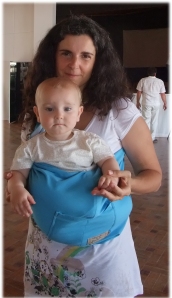Community Involvement
We are often bombarded with instructions about ethical, sustainable living. Companies, social enterprises and Governments of various flavours will tell us what we could be doing; but some of the most lasting results start and finish in communities. People doing it for themselves. People’s involvement underpinning simple ideas is usually the way to snowball change.
I have recently met a few people who are trying to involve others in initiatives that enable people to create change for themselves. Catalysts, not trying to sell you something necessarily, but presenting ideas that enhances people’s lives. Before I mention what they are doing I just want to look at community involvement as a concept in the Algarve.
We are just entering the time for more feira’s across the region. Every town and village seems to be putting up banners and organising music and activities. This glue that holds these communities together is all embracing and encourages old, young and foreigners to involve themselves in the pleasure of community life. People know each other through multiple connections. Serendipitous conversations are the way of exchanging information. The next level of involvement is coming together for a reason or aim. Last Saturday I went along to a meeting called for 3pm to talk about different approaches to sustainable lives. By 3:30 the organiser turned up and just a few people came along. The story went around that most people, who had been invited to listen, had chosen to go to the beach. Nevertheless the few people who came, shared ideas and stories. What is probably needed next is a plan. Someone then probably needs to cross reference what has already been planned locally, regionally and where money is being put.
So that’s part of the reality. What follows is some of the technical stuff that tries to operate through agencies and education – through the Casa do Povo’s, libraries and all parts of the community structures in the towns and villages.
The concept of community involvement takes many forms but the overall aim is to encourage people to work together for the benefit of their communities and to be able to influence decision making at local levels.
There are various ways to support community involvement.
- Supporting local people to set up a community group. Such as a mother and toddlers group, a group that gets older people together to share their knowledge and artisan skills
- Help people to influence local decisions through the production of a community-plan.
This can be done via community development workers who meet with some of the small groups that may meet for social reasons.
- Involve the wider community in what they are doing. Particularly helping to reach parts of the community that don’t often get involved.
This is often done through outreach work, visiting the elderly in villages and rural areas.
- Support organisations and community groups to more widely involve and engage a broad cross section of people.
A lot of work needs to be done here in terms of information sharing.
- Provide training, mentoring, facilitation and coaching for groups.
- Run workshops or training on key areas or issues.

A couple of examples of this can be seen in the recent initiative of Susana Schade a Portuguese woman, a mother of four children, who lives in Moncarapacho. She is working with some women to encourage them to recycle children’s clothes, by adding motifs and lengthening skirts and trousers with colourful trims. She is also working to raise awareness of the damage done by the constant use of disposable nappies. She has sourced a real nappy supplier who sells nappies that fit into specially designed reusable/washable pants. She is part of the community and openly shares her ideas.
Simply put, community involvement needs to be at the core of sustainable ethical living. Leo Hickman calls this approach long term thinking not short term thinking. Moving from the me to the we. Something the Portuguese seem to have held onto quite successfully.
Here is his list of where he thinks we can start.
Shopping and acting locally
Rethinking the food you eat
Reducing your energy demands
Considering the impact of travel
Donating your time and money
Alleviating social injustice
Encouraging companies to be more accountable for their actions
Nurturing community spirit
Reducing the impact of toxic chemicals
References
A Good Life – The Guide to Ethical Living edited by Leo Hickman
Susana Schade – Ribeira das Flores http://ribeiradasflores.blogspot.com/
